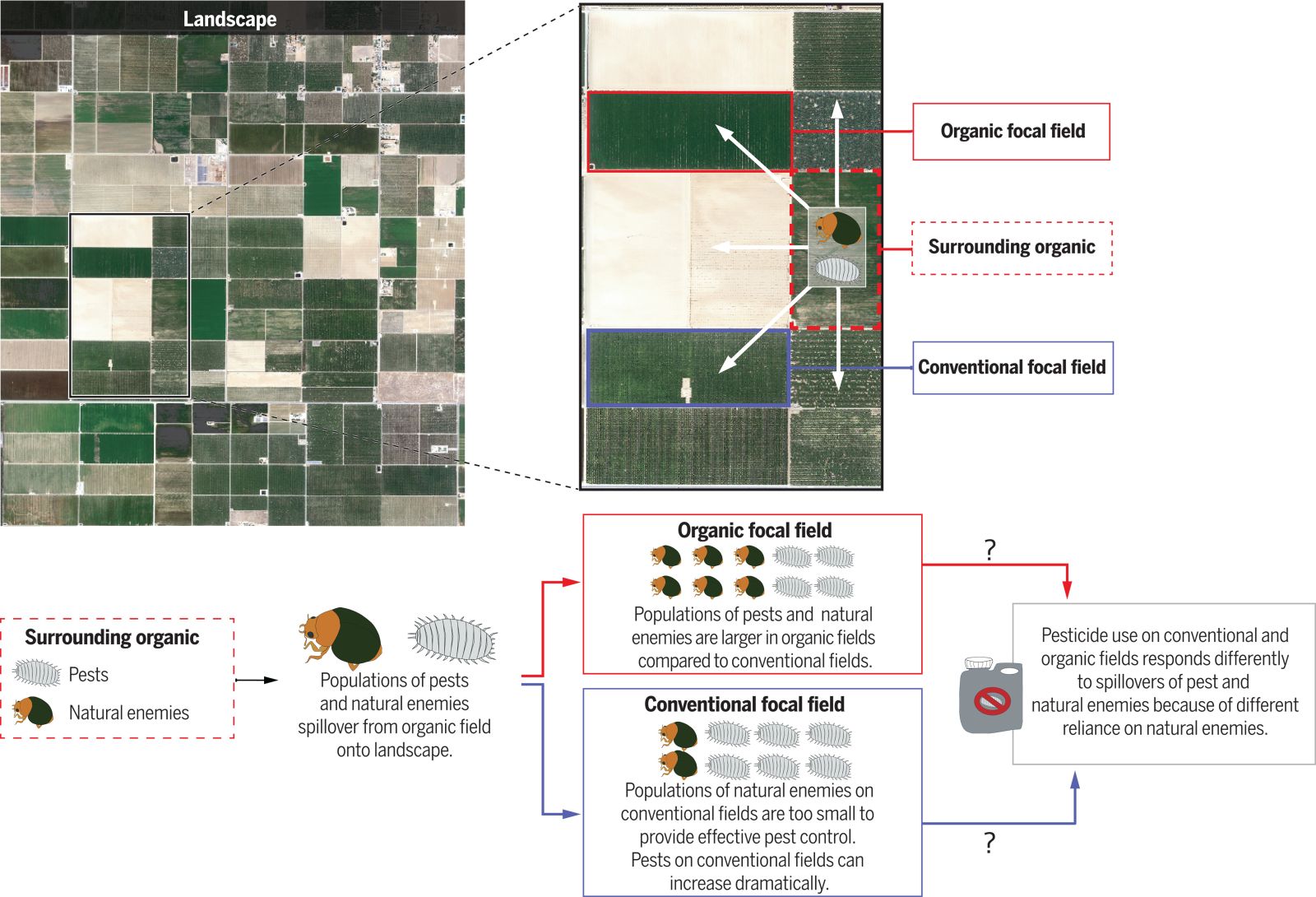Follow us on Google News (click on ☆)
Organic farming employs natural pest control methods, aiming for a more environmentally friendly cultivation. However, this new research highlights that the expansion of organically farmed land can lead to an increase in pesticide use in the surrounding conventional fields, mitigating some of the ecological benefits.

Negative effects, such as the increased use of pesticides in conventional fields surrounding organic plots, have been identified. These consequences can, however, be minimized if organic farms are clustered and geographically separated from conventional farms.
Ashley Larsen, from the University of California, Santa Barbara, and her colleagues analyzed data from around 14,000 fields in Kern County, California, over seven years. This region, which produces high-value crops such as grapes, watermelons, citrus fruits, tomatoes, and potatoes, is among the most valuable agricultural areas in the United States.
The team matched digital maps of the fields and the crops grown there with pesticide application records and organic certifications of the lands. It turns out that the proximity of organic fields leads to an increase in pesticide use on neighboring conventional lands, but also to a significant reduction in pesticide use on nearby organic fields, with the effect mainly seen with insecticides.
The researchers also found that conventional fields farther away from organic farms showed lower levels of pesticide. A solution to completely remedy the situation would be to cluster organic fields, according to a less detailed analysis also conducted at a national level by the researchers.

The increase in surrounding organic farmland leads to an increase in pesticide use in conventional fields and a decrease in organic fields.
Erik Lichtenberg, from the University of Maryland, commenting on this study, points out that farmers' decisions regarding pesticides are influenced by the presence of nearby organic fields, although the exact reasons remain to be clarified. The values of the crops, their susceptibility to pests, and the farmers' risk tolerance all likely play a role.
These findings shed light on the need for a better understanding of the interactions between organic and conventional agriculture, as well as the importance of research for a more harmonious and sustainable coexistence of the two practices.